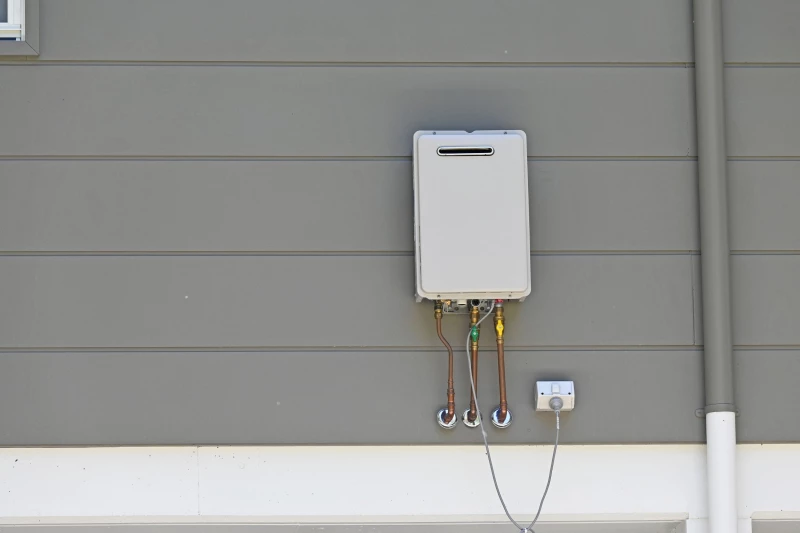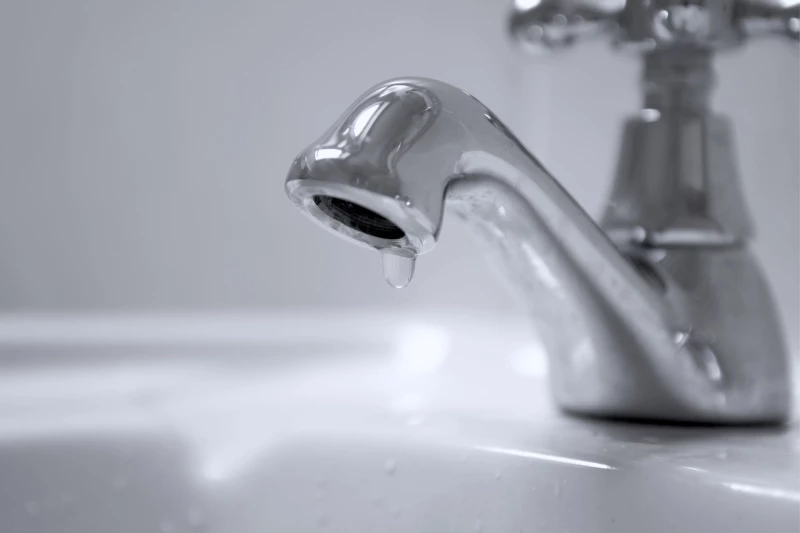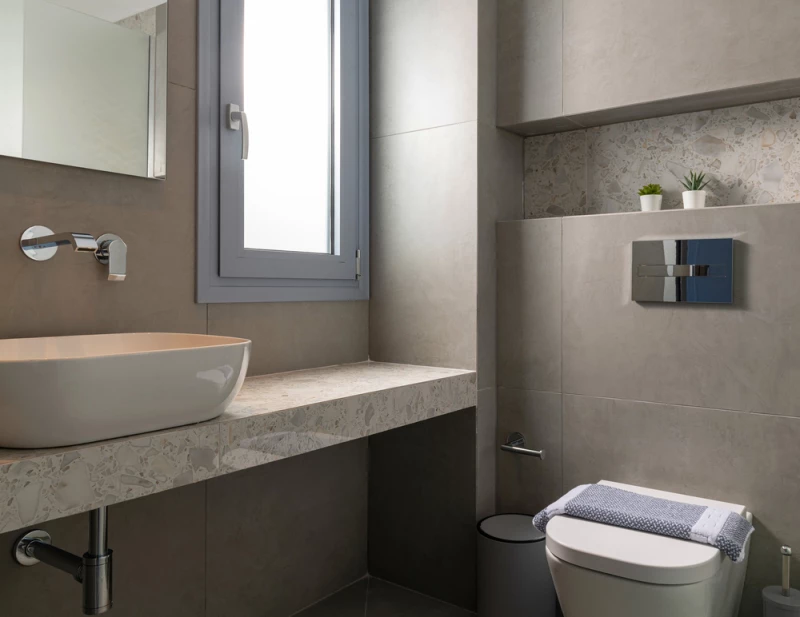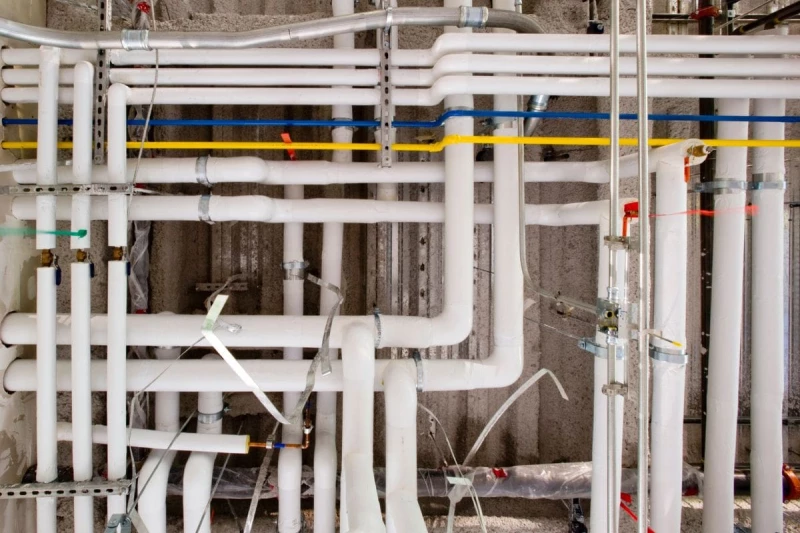So you’re thinking about getting a new hot water system but not sure what to go for? There are a few options out there, and it can get confusing trying to weigh them all up. To make your decision easier, we’ll break down the different types of hot water systems in Australia and look at the pros and cons of each.
Got a broken hot water system in need of replacement? Don’t hesitate to reach out to Swan’s Professional Plumbing for tailored advice!
The types of hot water systems in Australia
As you explore different hot water system options for your home in Australia, there are four main setups to consider — electric, gas, solar, and heat pumps. You’ll also find hot water systems fall into two main categories, either a continuous flow or storage system.
Continuous flow hot water systems
A continuous flow hot water system, also known as a tankless or instantaneous water heater, heats water on demand as it flows through the unit, providing a constant and unlimited supply of hot water without the need for a storage tank.
Pros of continuous flow hot water systems
- Unlimited hot water – Continuous flow systems provide hot water on demand, ensuring a constant and uninterrupted supply without the limitations of a storage tank.
- Energy efficiency – They are often more energy-efficient than traditional storage water heaters as they only heat water when needed, reducing energy consumption and potentially lowering utility bills.
- Space-saving design – Tankless systems are typically more compact and space-efficient compared to traditional water heaters with storage tanks, making them suitable for homes with limited space.
Cons of continuous flow hot water systems
- Upfront cost – Continuous flow hot water systems can have a higher upfront cost compared to traditional storage water heaters, including the expense of professional installation, which may deter some homeowners.
- Installation complexity – Installation may be more complex, especially if upgrading from a storage system, as it may require changes to gas or electrical connections and adjustments to meet specific installation requirements.
- Simultaneous usage limitations – While continuous flow systems provide hot water on demand, there may be limitations on the number of fixtures or appliances that can simultaneously receive hot water, which could be a consideration for larger households.
Key points when considering a continuous flow hot water system
- Compare upfront costs and installation expenses with budget constraints.
- Consider your household water consumption and evaluate the system flow rate in LPM to match your needs.
- Research whether you want to opt for an electric or gas system.
Storage Tank Systems
As the name suggests, a storage tank hot water system, also known as a traditional water heater, relies on a reservoir of preheated water stored in a tank, ready to be dispensed whenever hot water is needed.
Pros of storage tank hot water systems
- Cost-effective initial investment – Storage tank hot water systems generally have a lower upfront cost compared to tankless counterparts, making them a more budget-friendly option for many homeowners.
- Simultaneous hot water usage – As water is already available and not heated on demand, these systems can provide hot water to multiple fixtures simultaneously.
- Ease of installation and retrofitting – Storage systems are often simpler to install and can be more straightforward to retrofit into existing plumbing setups, making them a practical choice.
Cons of storage tank hot water systems
- Limited hot water supply – Storage tank systems have a finite amount of hot water available in the tank. Once this stored hot water is depleted, users may experience a delay as the system reheats more water, leading to temporary shortages during periods of high demand.
- Higher energy consumption – Continuous energy usage to keep the stored water hot, known as standby heat loss, can result in higher energy bills compared to tankless systems, which only heat water on demand.
- Space requirements – Storage tank systems require dedicated space for the tank, which can be a challenge in homes with limited space. Additionally, the size of the tank may need to correspond with the hot water demands of the household, influencing the available space needed for installation.
Key points when considering a storage tank hot water system
- Determine the appropriate tank size based on the hot water demands of your household.
- Ensure your home has adequate space for the tank, and consider the ease of installation, especially if retrofitting into an existing plumbing setup.
- Evaluate the system’s recovery rate, which indicates how quickly the storage tank can reheat water after depletion. A higher recovery rate may be beneficial for households with high hot water demands.
Electric hot water systems
Electric storage systems use electricity to heat and store water in an insulated tank. They are common in many households due to their affordability and ease of installation. Electric instantaneous or tankless water heating systems use electricity to heat water on demand.
Pros of electric hot water systems
- Lower upfront cost – Electric units are often cheaper to purchase and install compared to gas or solar water systems.
- Simple installation – Electric systems don’t require gas lines or solar equipment, which makes installation quicker and easier.
- Low maintenance – No moving parts means there’s less that can break down over time.
Cons of electric hot water systems
- High operating costs – If you don’t have solar, running an electric unit will increase your electricity bills, especially with older, less efficient models.
- Lack of energy in power outages – Electric systems rely fully on electricity to function. No power = no hot water.
- Potential for peak demand charges – Electric hot water systems, if used during peak hours, may contribute to higher overall costs.
Key points when considering an electric hot water system
- Consider wiring into a dedicated circuit for optimal performance.
- Schedule annual anode rod replacements to prolong tank life.
- Understand the maintenance needs of the electric hot water system
- Consider the system’s recovery rate, indicating how quickly it can reheat water after depletion.
- Choose between a regular tank or a tankless/instantaneous gas system.
Gas hot water systems
Gas hot water systems are one of the most common types of water heaters in Australian homes. These systems use natural gas or LPG to heat water in an insulated storage tank system or continuously on demand with a continuous flow hot water system.
Pros of gas hot water systems
- Relatively low operating costs – Gas is a cheaper fuel source compared to electricity.
- Faster heating rate – Gas systems typically have a faster heating rate compared to electric systems. This means that hot water is available more quickly at the tap, reducing waiting times.
- Long lifespan – A gas hot water system can last 10-15 years if properly maintained.
Cons of gas hot water systems
- Higher upfront costs – The purchase and installation of a gas hot water system is more expensive than some other hot water options.
- Requires gas connection – Your property must be connected to mains gas or have an LPG gas tank to operate.
- Adequate ventilation is needed – Combustion byproducts must be vented outside with stainless steel flue pipes. Making placement options limited for smaller properties.
Key points when considering a gas hot water system
- Consider the storage tank capacity needed for your household and expected peak usage times. Larger families may need a bigger system.
- Choose between a regular tank or a tankless/instantaneous gas system.
- Schedule annual servicing to keep your gas hot water system running safely and efficiently for years to come.
Solar Hot Water Systems
Harnessing the abundant sunlight in Australia, solar hot water systems are an environmentally friendly and energy-efficient option. They utilise solar collectors to absorb sunlight and convert it into heat, which is then transferred to the water.
Pros of solar hot water systems
- Environmentally friendly – Solar hot water reduces your home’s greenhouse emissions and carbon footprint.
- Lower energy bills – Solar heat is free once the system is installed. This means fewer energy bills over time compared to electric or gas systems.
- Government rebates – Many states offer generous rebates, incentives, and tax breaks for installing solar.
- Increased home value – Going solar adds value and appeal to your property.
Cons of solar hot water systems
- Higher upfront costs – Even with rebates, a solar water heating system is typically more expensive to purchase and install than some other types of water heaters.
- Requires direct sunlight – Solar collectors need full exposure to the sun’s rays to effectively heat water, so they may not work as well in certain climates or without proper roof positioning.
- Backup system required – A gas or electric water heating unit may still be needed for cloudy days and high water usage times when the sun alone can’t keep up with demand.
Key points when considering a solar hot water system
- Consider your climate and sun exposure. Areas with lots of direct sunlight are best suited for solar hot water systems.
- Size the system correctly. Undersizing won’t meet demand, while oversizing wastes money.
- Check angles and placement. Optimal orientation and tilt maximise efficiency.
- Have realistic expectations. Solar hot water works extremely well for most homeowners but may not provide 100% of hot water needs year-round.
- Look into local incentives and rebates. This can improve cost-effectiveness.
Heat pump hot water systems
Heat pump water heaters are one of the most efficient water heating systems in Australia. They work by using electricity to draw ambient air temperature to heat water.
Pros of heat pump hot water systems
- Lower running costs compared to electric systems – These generally incur lower running costs compared to electric systems due to their high efficiency in heat transfer and utilisation of diverse energy sources, contributing to reduced electricity consumption.
- You may be entitled to rebates – Like solar systems, you may be eligible for various rebates and incentives.
- Reduced environmental impact – Heat pumps are highly energy-efficient, as they transfer heat rather than generate it, making them more environmentally friendly and cost-effective over time.
Cons of heat pump hot water systems
- Higher upfront costs – Due to the complexity of these systems, the upfront cost is generally higher than some of the other options.
- Higher maintenance requirements – Heat pump water heaters have additional components, including fans and refrigerant systems, which may require more maintenance.
- Dependent on ambient air temperature – For example, heat pumps may experience reduced efficiency in colder climates. As the outdoor air temperature drops, there is less heat available for the heat pump to extract.
Key points when considering a heat pump hot water system
- Look for a heat pump with a high coefficient of performance (COP) to ensure optimal energy conversion.
- Determine your household’s hot water demand to select a heat pump with the appropriate size and capacity.
- Heat pump units may require significant outdoor space for installation. Ensure you have sufficient space and proper ventilation for the heat pump to operate efficiently.
Choosing the right hot water system for your home
Ultimately, the right hot water system for your home will depend on your budget, needs, and lifestyle. Take the time to weigh the pros and cons of different hot water systems and consult with one of our plumbing experts to assess your specific needs and determine the most suitable hot water system for your circumstances.




